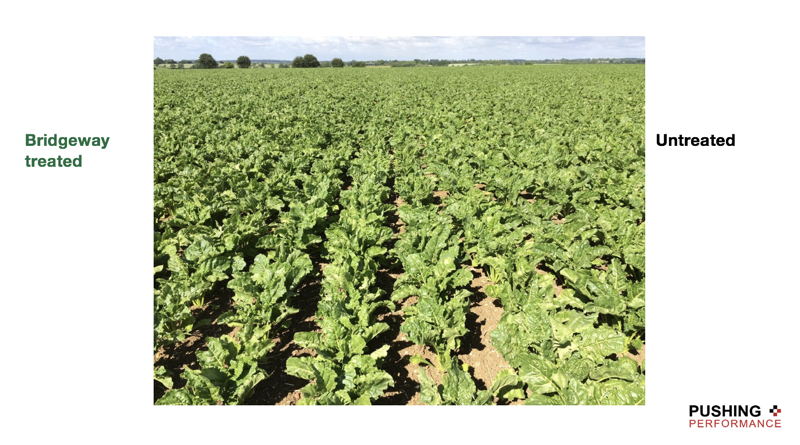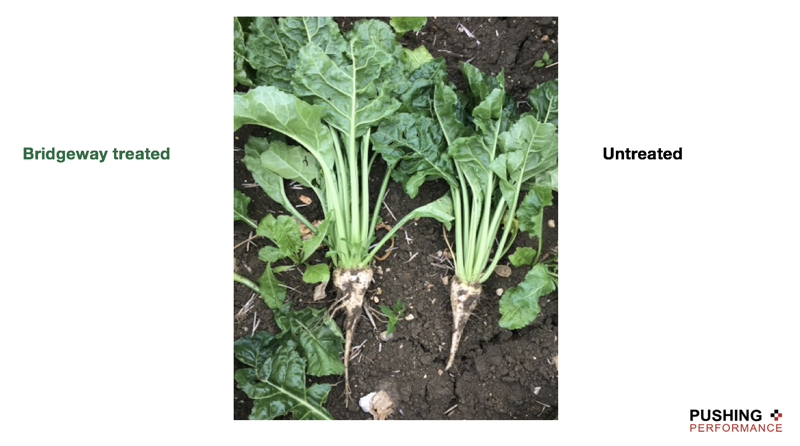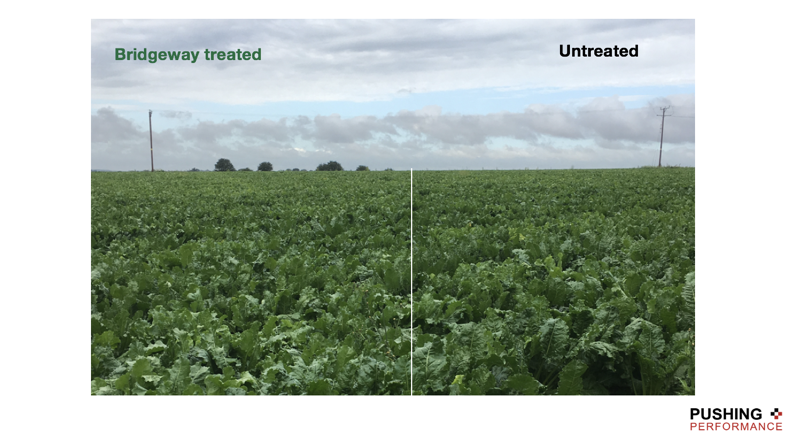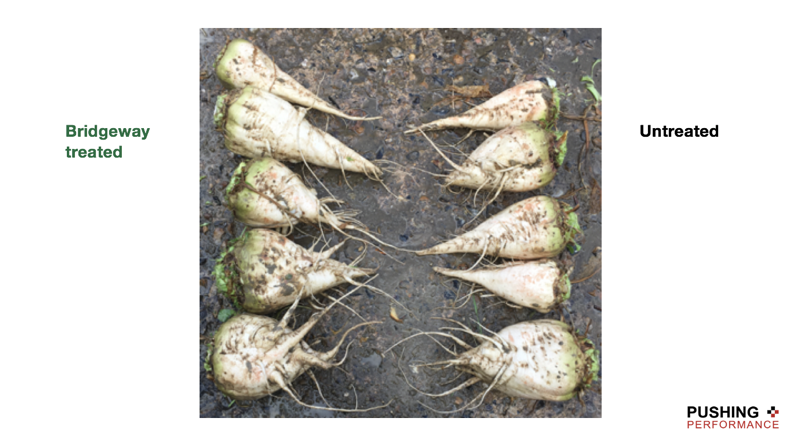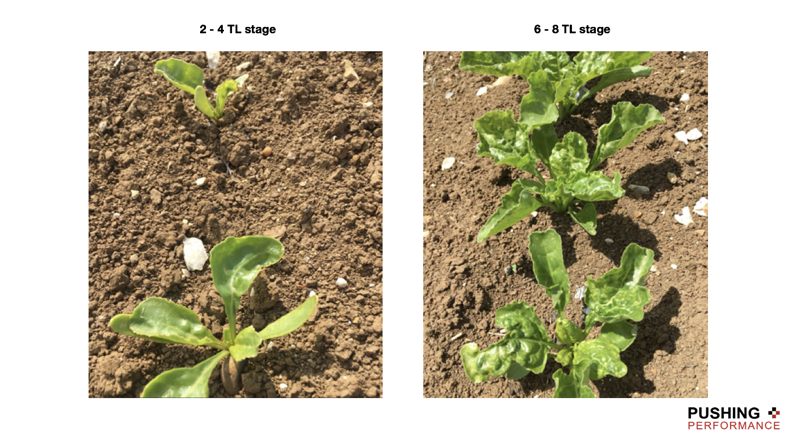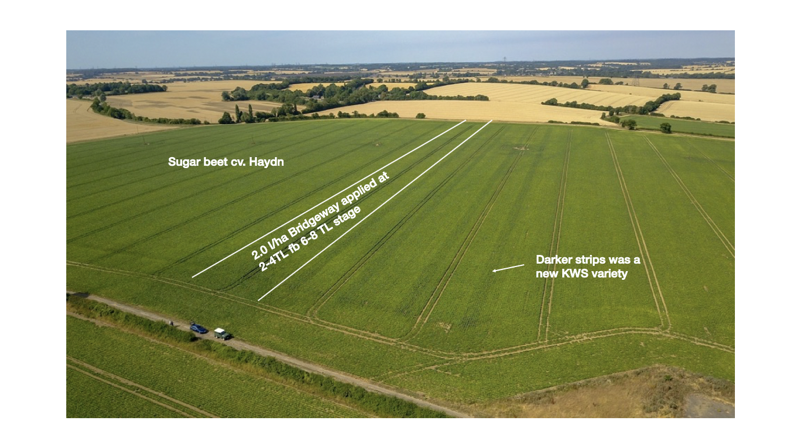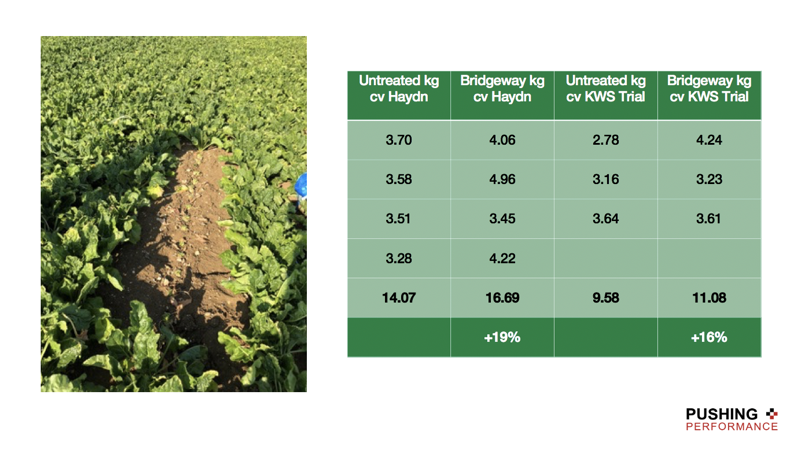Boost beet health with Bridgeway/Zonda
With the record breaking drought conditions of May and below average rainfall so far in June, sugar beet crops have struggled to get off to the best start. Whilst water stress will impact yield potential in all crops, sugar beet is particularly sensitive to abiotic stress, which decreases photosynthesis, canopy expansion, root growth and sucrose accumulations. These implications are already evident in many sugar beet crops now, with fields showing extremes of growth stages of 2 to 16 true leaves. High yields come from producing a full leaf canopy that intercepts 90% of incoming sunlight as quickly as possible and maintains its greenness right through the growing season.
Getting crops back on track with stress-busting biostimulants Bridgeway and Zonda will help to ensure profitability remains viable for the rest of the season.
How Bridgeway and Zonda can help
Biostimulants Bridgeway and Zonda contain crucial amino acids and signalling peptides that play a vital role in signalling healthy growth and development. Perhaps more importantly, they are also now proving indispensible in helping crops cope better with abiotic stress. Over the last 3 years, Bridgeway and Zonda have demonstrated significant yield improvements in replicated trials. Test digs in commercial field situations back up the independent trials by showing up to +23.4 t/ha yield increase (adjusted). These have often, but not exclusively, co-incided with periods of drought stress.
Water shortage has a significant impact on beet health and plant physiology. Photosynthesis, crucial for the production of sucrose, is also highly dependent on the plant’s water supply. Crops treated with Bridgeway/Zonda have a more well developed root system which are therefore more efficient at extracting water and nutrients from depth. By increasing chlorophyll production Bridgeway/Zonda also help the crop to harness light energy more efficiently, which has sometimes resulted in improvements in sugar content at harvest.
Fast to act, applying Bridgeway/Zonda now will help crops to access much needed moisture and nutrients, improve metabolic efficiency and also improve the tolerance of the crop to stress. Maintaining applications to help mitigate against crop stress until crops meet in the rows will further help to protect yield and build sugars.
Relief for drought stressed sugar beet crops
In 2017 Bridgeway was applied to 6 hectares of KWS Darnella at 2 true leaves and 6 true leaves to help alleviate the effects of drought stress. Two weeks after the application of Bridgeway, treated beet looked greener and healthier. The beet crop went on to produce more biomass and produced bigger tap roots than the untreated control. Further test digs in August and September revealed Bridgeway treated beet was both bigger and heavier.
Improvements in bulking after 53 days with no rain
In 2018, Bridgeway was put to the test on farm in two different sugar beet varieties. After 53 days without rain, crops showed a severe lack of bulking. Bridgeway was applied at 2.0 L/ha at the 2-4 true leaf stage and again at 6-8 true leaves to help stimulate growth and help the crop recover from drought stress. Visually, no above ground differences were observed, but below ground, test digs of 15 plants in 4 different locations of the field revealed an 18.6% increase in beet weight in cv. Hayden, and a 15.7% increase in the second variety.









